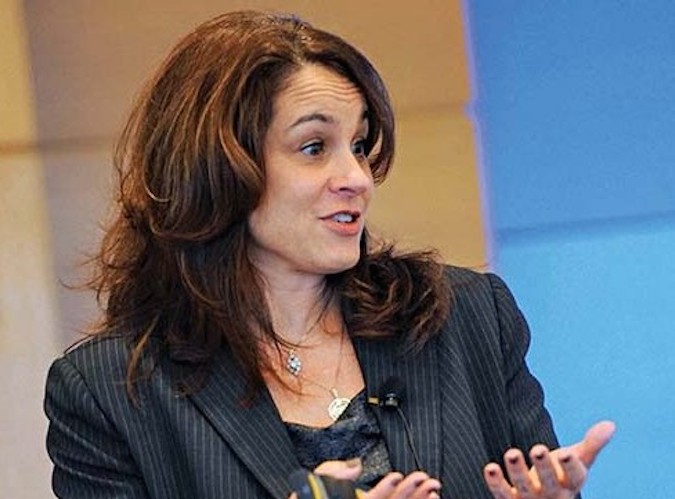After a decade of teaching Management 101, one of the flagship undergraduate classes at the University of Pennsylvania’s Wharton School, Lori Rosenkopf has had plenty of time to familiarize herself with the ins and outs of the school. That has helped her get off to a running start in her first year as vice dean and director of Wharton’s undergraduate program, a role she assumed in July of 2013.
An engineer by training with a strong interest in social networks and technology, Rosenkopf brings a unique perspective to Wharton’s four-year undergraduate business school, where she oversees about 1,700 students. The school is among the top ten business schools in the country, currently ranking fifth in Bloomberg Businessweek’s 2014 undergraduate business school ranking.
“For me, this mix of coming from a technically-oriented engineering field with a layer of business management added in gives me a nice mix of approaches,” she said. “That helps me in this role because we have students with such a wide range of interests, and we want to create programs and opportunities that appeal to them.”
Rosenkopf and her team appear to be succeeding so far. Wharton undergraduates can choose from one of 20 concentrations while they’re at the school, studying in-depth topics such as environmental policy and management social impact and responsibility. They also have the opportunity to do dual-degree programs between the Wharton School and the other colleges on campus, an increasingly popular option for many students, Rosenkopf said.
Next year, Rosenkopf is putting her own stamp on the undergraduate program, launching a course she’s developed that will expose a group of undergraduate students to technology companies and Silicon Valley, culminating in a trip to the West Coast and a visit to Wharton’s San Francisco campus.
Poets&Quants’ Alison Damast recently spoke with Rosenkopf in a wide-ranging interview about her new role, what she thinks Wharton’s strengths are and future plans for the program.
What appealed to you about taking on this new role at the school?
I’ve always loved teaching undergraduates in my time here, and interestingly before I came into this role I was teaching one of the core courses, Management 101. In some way I was already talking to people about running an organization and thinking about how to do it. It is nice for me to have the opportunity now to be practicing skills and working with people in my organization internally as well as helping our division make connections across the university. Penn is a very multi-disciplinary place, and one of the strengths of the program is helping students to think in multi-disciplinary ways. The more we are connecting across the university and even across areas in the school, the more students can create interesting conversations that allow them to attack business problems in new ways.
There has been an explosion in undergraduate business education in the last few years. What do you think are some of the reasons for it?
I think that undergraduate business education, at least the way we do it here at Wharton, is really giving students a mix of broad liberal arts exposure and some deep concentration in particular aspects of business. What people are realizing is that the set of skills you accumulate in business schools, both qualitative and quantitative, are skills that you can bring to any organizational setting, be it a traditional business or the not-for-profit sphere or any other opportunity where you can imagine students are looking to contribute to society. So business school skills are useful in traditional business and beyond.
I do think that demand is really growing at a higher rate at this point. Certainly if we look at our own trends in terms of just pure applications over the last decade, we’ve seen an almost continuous rise, with the exception of the economic crisis of 2008. For a couple of years we saw a small dip but by 2011 we were back at record highs. For the current application cycle right now, we’ve had a 13 percent increase in applications. So there really is a pretty dramatic leap. I think it represents this understanding more generally that business translates through many spheres. You are seeing interesting stories in society about people contributing, innovating and making changes that affect peoples’ lives around the globe, You are seeing that across the board, and I think students are responding to that.











